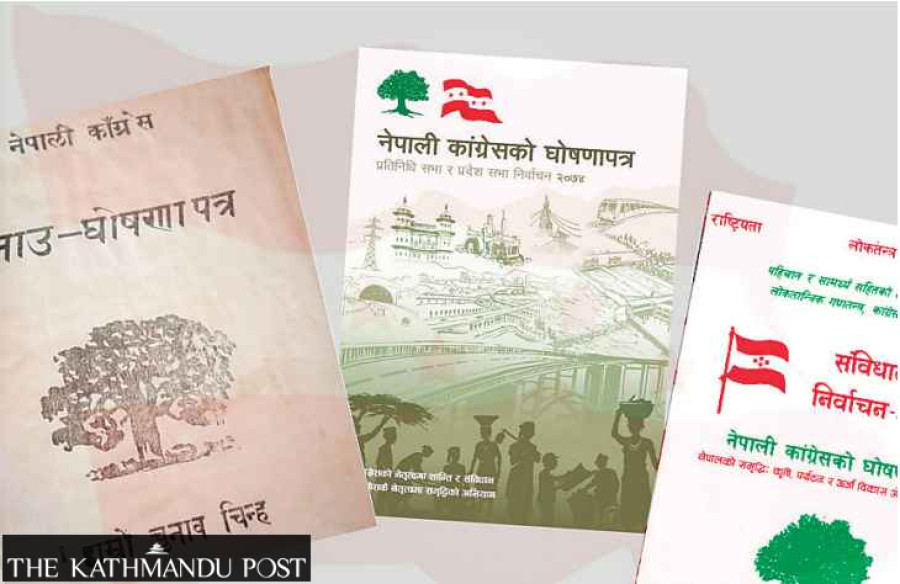Politics
Congress manifesto stresses national interest in foreign policy
The grand old party is set to unveil the manifesto for next month’s parliamentary and provincial elections on Saturday.
Anil Giri
The Nepali Congress aims to lay emphasis on securing the national interest while conducting foreign policy, according to the party’s commitment paper. Party president Sher Bahadur Deuba, is all set to unveil the commitment paper (manifesto) on Saturday.
“Due to the festival, many of our leaders were busy celebrating Tihar,” said Jeevan Pariyar, joint general secretary of the party.
Deuba, who is also the prime minister, is going to unveil a 50-page commitment paper on Saturday at party headquarters in Sanepa, according to a brief statement released by the party on Friday.
“The paper has given top priority to economic development, good governance, and foreign, economic and health issues and policies,” Pariyar, who is also the spokesperson for the drafting committee, told the Post.
Nepali Congress General Secretary Bishwa Prakash Sharma heads the commitment paper drafting committee, which is assisted by a team of experts led by National Planning Commission former vice-chair Swarnim Wagle
The commitment paper, divided into several sections, discusses the failures and wrongdoings of the previous KP Sharma Oli government detailing how he, despite being one of the most powerful prime ministers, assaulted democracy and democratic institutions and failed to govern the country. On the political front, the party will seek a full-five year term to run the government to secure political and economic stability, financial good governance, address the aspirations of the youth, promote entrepreneurship and would come up with a clear roadmap for national development over the next five years, the party’s leaders said.
When asked how the Congress intends to pursue its foreign policy goals if it gets to lead the next government, a Nepali Congress leader said national interest will be at the core of the party’s foreign policy.
“With national interest at the centre of its foreign policy, the party will work to attract foreign investment and promote trade and export through an effective conduct of economic diplomacy,” said Govinda Raj Pokhrel, also a former vice chairman of the National Planning Commission who is also a member of the manifesto drafting committee.
“The emphasis will be on strengthening national interest via the export of Nepali goods and effective use of economic diplomacy. We will also try to expand our ties with immediate neighbours and major powers,” said Pokhrel. “We are sensitive about the security concerns of our neighbors and have committed not to allow our land to be used against any country.”
The party leaders said the manifesto will focus and offer templates for broader economic development, social justice and foreign policy based on national sovereignty and equality, and would outline that Nepal can be transformed under the broader framework of democracy, liberal economic system, social justice and cultural development.
Other important issues like climate change and the utilization of natural resources will also get high priority in the commitment paper. Employment generation; addressing the grievances and aspirations of the Nepali youths; overall development of marginalised communities and vulnerable people; and promotion of social justice, equality and identity are other key priorities, according to the members of the manifesto drafting committee.




 13.12°C Kathmandu
13.12°C Kathmandu














